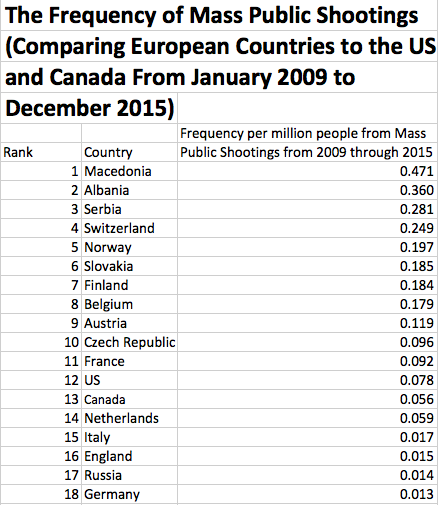Last week, ahead of this week’s vote on the PROMESA bailout legislation for Puerto Rico in the U.S. House of Representatives, a commission appointed by Puerto Rico’s government released a preliminary report charging that the Commonwealth violated its Constitution in issuing billions of dollars of its $72 billion debt. If the bonds were in fact sold illegally, the report insinuates, then the government shouldn’t have to pay them back.
In other words, they would punish lenders for the Puerto Rican government’s own mistakes.
So not only would Puerto Rico’s government get a free pass from its obligations after illegally issuing some of its debt, it would effectively be allowed to stiff good faith bondholders.
It’s worth emphasizing that the legislative body that created this commission, whose membership includes Puerto Rico legislators with obvious conflicts of interest, authorized the very same bond sales that it now seeks to repudiate.
That is morally and logically backward, and sounds like a plot characteristic of a lawless dictatorship. And for very good reason: Shenanigans like this are a tried and true tactic of leftist Latin American countries, rooted in the rhetoric of Cuban Dictator Fidel Castro from 30 years ago. It has been attempted with varying degrees of success by governments or factions in Brazil, Argentina and Ecuador. More recently over in Europe, a similar government-appointed commission made nearly identical claims in Greece.
Conspicuously, Puerto Rico’s government has not directed any funding toward this commission that it created a year ago. So that raises an obvious question: Who is behind this report?
Well, we already know that SEIU was heavily involved in the drafting process, and was one of a number of “stakeholders” to provide “in-kind labor contributions.” The SEIU, of course, has a vested interest in ensuring that its members receive preferential treatment over good faith bondholders in Puerto Rico, even if Congress has to rewrite the rules to make that possible.
It also has been reported that SEIU has deep ties to consulting firms retained by the Garcia Padilla Administration. It also is tied directly to the Administration through former president Dennis Rivera, who came under fire earlier this year for running a questionable non-profit in Puerto Rico whose only paid employee is the governor’s brother.
What about those “other stakeholders” who contributed?
We can’t know for sure, but there are commonalties between Puerto Rico and other governments that have attempted similar tactics. For example, they all had a common ally in Jubilee, the leftist religious organization that has fought to wipe out bondholders in debt disputes across the world, and which has been a staunch advocate before Congress of doing the same to the American savers who lent money to Puerto Rico.
Ecuador, Argentina and Greece also all at one point retained the same counsel as Puerto Rico, which has built a reputation helping leftist governments to avoid repaying the money that they’ve borrowed.
One thing is clear: The Commission’s report amounts to a political and negotiating ploy. It’s designed to give Puerto Rico enormous leverage over the innocent people from whom it borrowed, threatening them with the prospect of the all-powerful PROMESA control board invalidating 100% of their debt.
Members of Congress should, at the very least, understand the lengths to which Puerto Rico’s government is going to escape its obligations.



 In an interview with Bob Dorigo Jones, Senior Fellow at the Center for America, discusses how out-of-control lawsuit abuse hurts families, communities and job providers, and the finalists in the annual Wacky Warning Label Contest.
In an interview with Bob Dorigo Jones, Senior Fellow at the Center for America, discusses how out-of-control lawsuit abuse hurts families, communities and job providers, and the finalists in the annual Wacky Warning Label Contest. In an interview with CFIF, Justin T. Johnson, Senior Policy Analyst for Defense Budgeting Policy at The Heritage Foundation’s Allison Center for National Security and Foreign Policy, discusses the 2016 Index of U.S. Military Strength, the National Defense Authorization Act and the dangers that lie ahead if the U.S. military remains dangerously weak and unprepared.
In an interview with CFIF, Justin T. Johnson, Senior Policy Analyst for Defense Budgeting Policy at The Heritage Foundation’s Allison Center for National Security and Foreign Policy, discusses the 2016 Index of U.S. Military Strength, the National Defense Authorization Act and the dangers that lie ahead if the U.S. military remains dangerously weak and unprepared. CFIF Freedom Line Blog RSS Feed
CFIF Freedom Line Blog RSS Feed CFIF on Twitter
CFIF on Twitter CFIF on YouTube
CFIF on YouTube